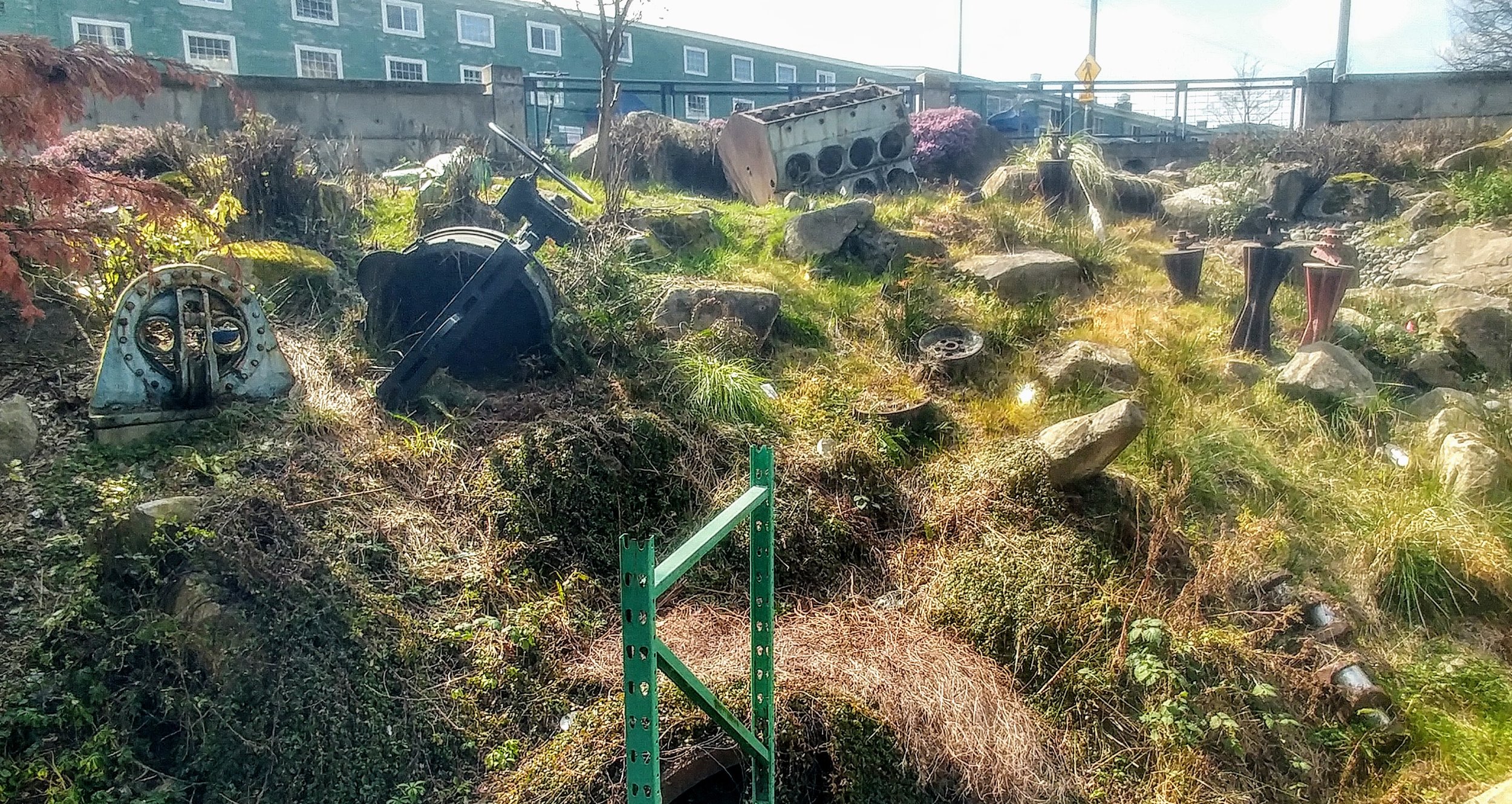Vulcan/Hephaestus is everywhere here, everywhere in most cities, in the metal sculptures that dot the urban core, in the great bridges that span it, in the tools that heat and bend the things of earth in the service of building the things of humans. But this is not a cheerful story (content warning: abandonment).
Vulcan (Hephaestus in the Greek) was thrown off Mt Olympus by his mother, Hera, for being ugly and/or as revenge against her husband, Zeus, for one of his many affairs (abandonments, betrayals), in other words Hera treated Hephaestus as Zeus had often treated her; and like his mother Hephaestus was wounded for life, walked around with a limp as a constant reminder of that earliest pain, reacted swiftly and vengefully to further rejection when it came. (continued below image)
I want to talk about how that kind of abandonment sticks with you as shame, how people are so often puzzled by their deep sadness when there's no obvious trauma in their past -- "I have a great life! Nothing to be so upset about! I just don't understand it!" but the more we inquire the more we see that there are lots of subtle little abandonments along the way, quiet ways a person feels the core self subtly rejected to the point that acceptance seems accessible only through the crafting of a false self, a facade that conforms to the collective rather than celebrating the core uniqueness of the individual. How devastating that is for gods and humans alike.
I want, too, to write about how Hephaestus was fostered by sea nymphs -- by beings who were at home in the waters of the emotional unconscious -- and then how, when he was grown, he became a smith, a god of fire and hammer, of anvil and art. Not the so-called finer arts like painting and drawing but the muscled arts, the big fierce arts, the ones that require volcanoes and heaving and sweat.
I want to notice how intense emotions are deeply physical, how shame, horror, anger, loathing, and others lodge themselves in the body, sometimes get paralyzed there, until something comes to soften them, to bend them, to work them out: the pounding of a hammer, the fierce wielding of a torch. The making of knives and swords and armor, the creation of thrones fit for gods. The hoeing of a garden bed. The stirring of a bubbling stew. The hiking of a long, rough trail. Things of the senses, things of strength, things of power.
I want also to talk about how easy it is to reawaken and reactivate shame, as when Hephaestus caught his wife, the beautiful Aphrodite, in bed with Ares, the god of war, how he used his art to exact his revenge, crafting a golden net to catch the lovers in the act so the other gods could laugh at them. From Hera, to Hephaestus, to Ares and Aphrodite, the rejection and shame get passed like a ball of fire, sometimes repurposed toward something good, sometimes slipping and burning others with it yet again.
I want to acknowledge the reality of how easy it is for us all to slip into that rejection and shame cycle, and how equally hard it is to throw a wrench in it forever, to sweat through that fire instead of succumbing to it, to bend metal with heat and muscle, to make something beautiful and strong through the burning-through, over and over and over again, of primal grief.

